Services
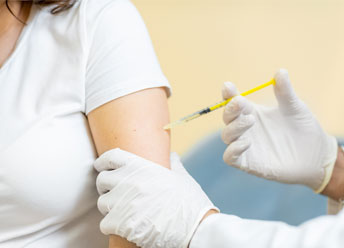
Vitamin B12 Injection
Vitamin B12 is a water-soluble vitamin and one of the 8 B vitamins that our body requires. It helps in producing red blood cells & maintaining a healthy nervous system. It is essential for a healthy immune system, plays a vital role in the metabolism of every cell in the body, and also helps to regulate mood. It is an essential nutrient that our body cannot make on its own and hence you need to supply it through your diet or additional intake of supplements.
Common reasons for deficiency of Vitamin B12 include
- Vegetarian and Vegan diets as B12 is abundantly found in animal products. Vegan sources of B12 include seaweed, algae, and nutritional yeast; however, absorption can be erratic and result in low levels of B12 in the body.
- Problems with nutrients absorption
- Anaemia
Benefits of Vitamin B12 injections include:
- Energy boost as B12 assists in converting food into glucose
- Brainpower boost as well as improvement in memory and focus.
- Lowers the risk of cancer, heart diseases and other diseases.
- Can aid weight loss as B12 boosts metabolism.
The injection is given intramuscularly (delivered into the muscle). It is increasingly popular and much needed in individuals who are vegan and the elderly.

Ear Irrigation
Our ears naturally secrete wax (also known as Cerumen) to protect and lubricate the ear and keep out debris and avoid bacteria growth.
Ear irrigation is advisable as the canal and eardrum are very sensitive. Earwax build-up can cause damage to them overtime which can also affect your hearing.
If you face symptoms such as pain, itchiness and ringing in the ear, dizziness and coughing and also loss of hearing; do contact your audiologist to check if there is an earwax blockage.
Using cotton swabs, bobby pins and other objects in your ear can push earwax deeper into the ear canal leading to an often painful blockage. Frequent usage of earphones also contributes towards wax build-up as they can prevent earwax from coming out of the ear.
Ear irrigation is an effective method of cleaning the ear. It involves flushing the ear with liquid (water or solution mixed with water) to remove the build-up. Most people have vouched for ear irrigation to be a comfortable process and is usually completed within 30 minutes.
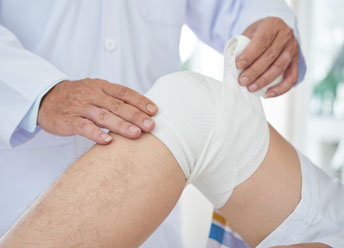
Wound Dressing
Wounds tend to heal differently for different individuals. Some heal quickly and some tend to take time to heal, which could lead to additional medical and other problems. Professional wound care is an important area of medicine which is often neglected.
There are different types of wounds like leg ulcer, venous ulcers, arterial ulcers, diabetic foot ulcers, surgical wounds, accident related wounds, wounds in children & chronic wounds I(Ulcers). Laceration, Abrasion, Puncture are some more types of wounds.
Different wound dressings are used dependant on the wound to reduce the possibility of infection.
Various factors are taken into consideration while treating a wound or ulcer:
- Where is the wound on the body?
- How should the wound be cleaned?
- Type of dressing required for the wound
- How to reduce the possibility of wound infection?
- Allergies and sensitivity for the patient
It is a true fact that wounds if not taken care of, can lead to further complications and also infections. Hence when a wound infection is diagnosed it is imperative to have prompt, efficient and effective care to be tendered. It can be detrimental to the patient if appropriate care is not taken on time.

ECG
Electrocardiogram popularly known as ECG, is used to record electric signals from your heart to check for different heart conditions. Electrodes are placed on your chest to record electric signals from your heart, which is shown as waves on an attached computer or printer.
ECG is conducted to assess the heart beat and rhythm. This test helps in detecting heart diseases, heart attacks, an enlarged heart, or an abnormal heart which may cause heart failures.
Your physician may recommend a ECG when you’re experiencing the following symptoms: –
- Pain in your chest
- Troubled Breathing
- Pounding, racing, or fluttering in your heart
- Detection of unusual sounds when the physician listens to your heart
- If your 50 and above and there is a history of heart disease in your family
During an ECG, technician will attach electrodes with a gel to your chest, arm and legs. These electrodes are attached to a wire which is attached to a computer screen or printer. ECG is a quick and painless procedure.
ECG results can be affected by the following: –
- Exercise or smoking before the test
- Certain Medicines
- Movements during the test
- Obesity
Depending on your ECG the physician will either recommend a follow-up or advise medications/treatments to improve your heart’s condition.

Vaccines
A vaccine is a biological substance that is used to stimulate the production of antibodies and provide immunity against one or several diseases/infections. Vaccines contain dead or weakened version of a microbe which helps our immune system to recognise and destroy the living microbes in case of a future infection.
Vaccines are also popularly known as Immunizations as they take advantage of our natural immune system’s ability to prevent an infectious ailment.
The process of introducing the vaccine to our body to provide immunity is called Vaccination. And when the person gets protected against the disease through vaccination, it is called Immunization.
Vaccination is of utmost importance as it protects children from serious sickness and complications of vaccine-preventable diseases which can lead to brain damage, amputation or paralysis of limbs, convulsions, hearing losses or even death. Measles, whooping cough and mumps are still a huge threat and are vaccine-preventable diseases.
There are few vaccines which provide immunity for life such as Measles and Hepatitis B, whereas Tetanus stays active for some years and requires periodical boosters.
It is advisable to vaccinate children over 6 months annually during flu season to avoid a potentially serious case. It is also advisable to immunise children against 14 vaccine-preventable diseases by their second birthdays.
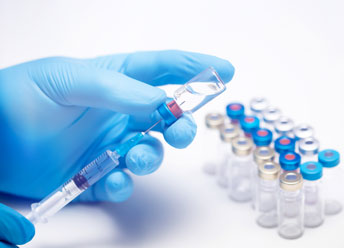
Travel Vaccines
An essential part of holiday planning, especially when travelling internationally, is also taking care of Travel Vaccines. Many travellers catch viral or bacterial infections as well as other ailments when travelling abroad due to a number of factors. This is where Travel Vaccination comes in.
Travel vaccines are immunizations shots that travellers need to take before travelling to certain parts of the world to help protect themselves from serious illness. It is important to get yourself vaccinated
minimum 2 weeks before travel and to carry proof of vaccination with you on your journey.
Travel Vaccine requirements vary from country to country. Depending on the country you’re travelling to, you would need to vaccinate against malaria, chicken pox, whooping cough, insect bites, traveller’s diarrhoea or other health diseases. Travel vaccination cost differ from location to location.
Travel vaccines require a course of 3 injections for full protection. The 2nd dose is given 3-5 months after the 1st dose and can provide immunity for a year. 3rd dose is given 5-6 months after the 2nd dose and provides immunity up to 3 years.
Travel vaccines that we provide at the clinic are Hepatitis A, Hepatitis B, Typhoid, Rabies and Tetanus.
Different travel vaccines have different schedules depending on the country you are travelling to, the number of vaccines and the schedules will vary accordingly.
We provide free telephone consultation to suggest you the right vaccines.
Please keep all the information handy about previous travel vaccinations if any during the consultation.
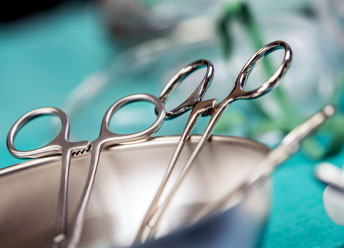
Stitches (Sutures) Removal
Stitches (also called sutures) are used to close cuts and wounds in the skin. They can be used in nearly every part of the body, internally and externally. Doctors literally “sew” the skin together with individual sutures and tie a secure knot. Stitches then allow the skin to heal naturally when it otherwise may not come together. Stitches are used to close a variety of wound types. Accidental cuts or lacerations are often closed with stitches. Also, surgeons use stitches during operations to tie ends of bleeding blood vessels and to close surgical incisions.
Sutures are divided into two general categories, namely, absorbable and nonabsorbable. Absorbable sutures rapidly break down in the tissues and lose their strength within 60 days. This type of suture does not have to be removed. These are used to close the skin and for other internal uses where a permanent stitch is not needed. Nonabsorbable sutures, on the other hand, maintain their strength for longer than 60 days. These sutures are used to close skin, external wounds, or to repair blood vessels, for example. They may require removal depending on where they are used, such as once a skin wound has healed.
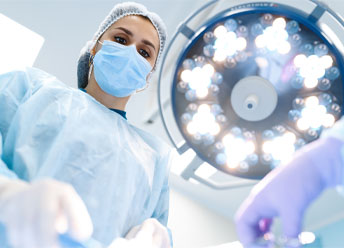
Surgical Staples Removal
Surgical staples are used to close incisions after surgery. Staples may be a better option in some cases than stitches or sutures.
Unlike stitches, surgical staples don’t dissolve as your incision or wound heals. For this reason, they require some special care and must be removed by your doctor once the incision has healed.
